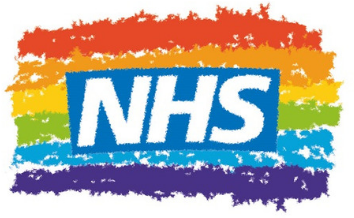The practice is registered and complies with the Data Protection Act 1998. Any request for access to notes by a patient, patient’s representative or outside body will be dealt with in accordance with the Act. Please contact the Practice Manager for further information.
Your Data Matters to the NHS
Your health records contain a type of data called confidential patient information. This data can be used to help with research and planning.
You can choose to stop your confidential patient information being used for research and planning. You can also make a choice for someone else like your children under the age of 13.
Your choice will only apply to the health and care system in England. This does not apply to health or care services accessed in Scotland, Wales or Northern Ireland.
Find out how this data is used and how to opt out on the following link:
https://www.nhs.uk/your-nhs-data-matters/
Summary Care Record
If you’re registered with a GP surgery, you’ll have a Summary Care Record unless you’ve chosen not to have one. It contains basic information including your allergies, medicines and any reactions you’ve had to medicine in the past. By storing all this information in one place, it makes it easier for healthcare staff to treat you in an emergency, or when your GP practice is closed.
You cannot get your Summary Care Record online. If you’d like to see it, speak to your GP.
To opt out of having a Summary Care Record, speak to your GP or another health professional.
Coronavirus update: During the coronavirus outbreak, you will also have extra information added to your record. This includes significant medical history (past and present), reasons for medicines, care plan information and vaccinations.
For further information, follow this link to visit the ‘How to access your health records’ page on the NHS website.
Freedom of Information
The Freedom of Information Act 2000 provides public access to information held by public authorities.
The Act covers any recorded information that is held by a public authority in England, Wales and Northern Ireland, and by UK-wide public authorities based in Scotland. Information held by Scottish public authorities is covered by Scotland’s own Freedom of Information (Scotland) Act 2002.
Public authorities include government departments, local authorities, the NHS, state schools and police forces. However, the Act does not necessarily cover every organisation that receives public money. For example, it does not cover some charities that receive grants and certain private sector organisations that perform public functions. GPs, dentists and other health practitioners only have to provide information about their NHS work.
Recorded information includes printed documents, computer files, letters, emails, photographs, and sound or video recordings.
The Act does not give people access to their own personal data (information about themselves) such as their health records or credit reference file. If a member of the public wants to see information that a public authority holds about them, they should make a subject access request under the Data Protection Act 1998.
For further details on the Freedom of Information go to the ICO website
GP2GP
GP2GP enables patients’ electronic health records to be transferred directly and securely between GP practices. It improves patient care as GPs will usually have full and detailed medical records available to them for a new patient’s first consultation.
Patient benefits
When patients move practices, paper medical records can take weeks to arrive but GP2GP transfers are faster, more reliable and more secure than the existing paper-based method of transferring patient records. This means your new practice will have your full and detailed medical record available in time for your very first appointment.
FAQs
- What is GP2GP?
GP2GP is the technology that transfers your electronic health record directly and securely from your previous GP when you register at this practice. - Does my old practice need to be using GP2GP for my electronic health record to be transferred electronically?
Yes, both practices need to be using GP2GP. If they are not, only your paper medical record will be sent and will include a print-out of your electronic health record from your previous practice. - What happens to my paper record?
Your paper medical record will also be transferred to this practice. This usually takes about six to eight weeks. In the future when all practices are using GP2GP the need for sending paper records may be reviewed. - What information will be transferred in my electronic health record?
The information contained within your electronic health record at your previous practice will be transferred. This includes information about your medications, allergies, adverse reactions, immunisations and vaccinations, laboratory results, diagnoses, medical history and letters from specialists. - Will my repeat prescriptions be automatically transferred as well?
Yes, GP2GP transfers all the information about your medications. Your new GP will review all the medicines you are taking before authorising any repeat prescription. - I am registering as a temporary resident. Will my electronic health record still be transferred electronically?
No. If you are registering as a temporary resident your health records remain at your usual practice and are not transferred either as paper or via GP2GP. Your temporary practice will contact your registered GP if they require any information. - Where can I find out more about GP2GP
Our practice staff should be able to answer any queries you may have. You can also read about GP2GP on the Health and Social Care Information Centre website: www.hscic.gov.uk/gp2gp



